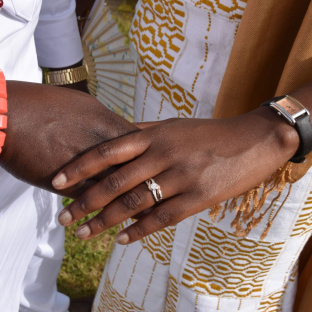The age-old question “Should Love Be a Transaction?” has puzzled great thinkers, sociologists, and regular people for a long time. This simple yet somewhat complex question touches on deep-rooted cultural values, evolving social norms, and economic realities, particularly in modern Nigerian society. Let’s explore this question by considering various perspectives and the nuanced nature of relationships in our contemporary world.
Should Love Be a Transaction? Defining Transactional Love
Transactional love refers to relationships where material or financial considerations play a significant role in partner selection and relationship dynamics. This concept contrasts with the idea of love based purely on emotional connection and compatibility.
Traditionally, Nigerian cultures have often viewed marriage and relationships through a lens that includes economic considerations. Bride price, for instance, has been a longstanding custom in many Nigerian ethnic groups. This practice, where the groom’s family provides gifts or money to the bride’s family, has been seen by some as a way of showing appreciation and respect, while others view it as a form of transaction.

Balancing Emotion and Practicality in Modern Relationships
In recent decades, the concept of love as a purely emotional and spiritual connection has gained traction in Nigeria. This shift stems from global cultural influences and increased exposure to Western ideals through media and education. This perspective believes that true love should be based on mutual affection, compatibility, and shared values, rather than financial or material gain.
However, the economic challenges facing many Nigerians add another layer of complexity to this debate. Critics argue that basing relationships on financial considerations can prevent genuine emotional connections. They believe true love should transcend material gain. On the other hand, pragmatists suggest that love and financial considerations aren’t mutually exclusive. They view the ability to provide for one’s partner as an expression of love and commitment.
The rise of social media and ‘slay queen’ culture
The rise of social media and ‘slay queen’ culture in Nigeria has further complicated the debate around “Should love be a transaction?” The ostentatious displays of wealth and luxury lifestyles promoted on platforms like Instagram have created new expectations and pressures in relationships. This has led to concerns about the authenticity of relationships and the potential for exploitation.
It’s important to note that this debate isn’t unique to Nigeria. Globally, there’s an ongoing discourse about the role of economics in relationships. Concepts like ‘gold diggers’ or ‘sugar daddies/mommies’ exist in many cultures, reflecting the universal nature of this question.
Should Love Be a Transaction? The Redpill Perspective
A recent development in the ongoing debate of “Should love be a transaction?” is the growing influence of the redpill movement in Nigeria. This controversial ideology, originating from online communities and championed by Romanian-American influencer Andrew Tate, promotes a hyper-pragmatic and often cynical view of romantic relationships.
This movement often portrays love as inherently transactional, with followers arguing that women primarily seek men for resources and status.
Critics worry that this perspective could exacerbate gender tensions and promote unhealthy relationship dynamics. This is because it adds another layer to the complex question, and its influence may shape how younger generations approach relationships, potentially intensifying the tension between emotional connection and practical considerations in love.


Finding a balance between both worlds
From a psychological standpoint, healthy relationships thrive on mutual respect, trust, and emotional connection. While financial stability can contribute to relationship satisfaction, it shouldn’t form the primary basis for love. Relationships founded solely on material considerations often lack depth and struggle when faced with challenges.
However, completely disregarding practical aspects of life in a relationship may be naive. In Nigeria, where extended family obligations are often significant and social services are limited, partners’ ability to support each other financially can be crucial for long-term stability and happiness.
The key lies in striking a balance. Love should primarily focus on emotional connection, shared values, and mutual respect. Financial considerations can be part of the equation, but they shouldn’t overshadow the core emotional aspects of a relationship. Open communication about financial expectations and goals can help couples navigate these issues without reducing their relationship to a mere transaction.
On the flip side, education and empowerment play important roles in addressing this issue, and as more Nigerians become financially independent, the pressure to view relationships through a primarily economic lens may decrease. Promoting financial literacy and creating more economic opportunities can also help shift the focus back to emotional compatibility in relationships.
Conclusion
In conclusion, while love shouldn’t be reduced to a transaction, it’s important to acknowledge the complex interplay between emotions and practical considerations. The ideal approach values emotional connection and compatibility above all while remaining realistic about the practical aspects of building a life together.
As Nigerian society evolves, so too will our understanding of love and relationships. The goal should be to foster connections that are both emotionally fulfilling and practically sustainable, without losing sight of the fundamental human need for genuine affection and companionship.
Ultimately, the answer to “Should love be a transaction?” depends on individual values, circumstances, and cultural contexts.
Bravewood is licensed by the Central Bank of Nigeria to provide investments with low risk and high returns for Nigerian professionals.

